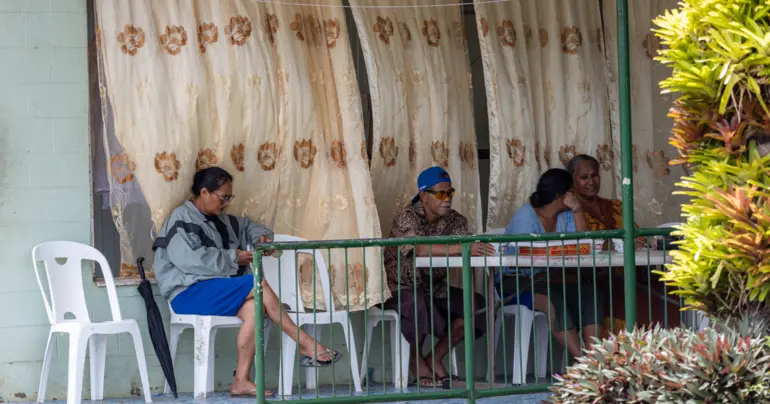A bureaucrat with absolute power?
 By The Editorial Board
•
22 January 2021, 4:00AM
By The Editorial Board
•
22 January 2021, 4:00AM
You have to wonder how much more powers do top bureaucrats possess, after the spat in Parliament on Wednesday between the Prime Minister and Salega M.P. Olo Fiti Vaai, revealed the Ministry of Prime Minister and Cabinet C.E.O. can turn bills into the law of the land in the absence of the Head of State.
Having been independent for 59 years, citizens got used to seeing Heads of State over the years sign their assent to new legislation, to conclude the legislative process and formally give effect to passed laws.
But on Wednesday Olo asked questions during the Parliament session, on whether it was “appropriate” for the C.E.O. of the Ministry of Prime Minister and Cabinet to have authority to give his or her assent to a new law, when the Head of State did not perform his or her constitutional functions by signing.
“To me, it is not appropriate,” Olo said in Parliament. “Bills are proposed by the Government and [are] approved in Parliament and [if they are not endorsed by the Head of State] then it goes to the M.P.M.C. Chief Executive Officer for endorsement.
“And when that happens, questions do arise [about] the process.”
We do see the rationale of the point that the Salega M.P. raises: there needs to be integrity in the whole legislative process – from the day a Government Ministry gives instructions for the legislation to be drafted, to its passing by the Parliament and the Head of State giving his or her assent to the new laws to conclude the process.
And the fact that that constitutional responsibility of assent now rests with a bureaucrat who heads the Prime Minister’s Ministry, in the absence of the Head of State and outside the remit of a constitutional office holder, is a cause for concern.
Why couldn’t that constitutional responsibility of assent be given to the Council of Deputies who are elected by the Legislative Assembly and are already empowered under Article 23 (Absence or incapacity) of the Constitution to perform the functions of the Office of the Head of State?
And thus removing a bureaucrat from the legislative process and maintaining its sanctity, while ensuring the C.E.O. of the Ministry of Prime Minister and Cabinet sticks to policy implementation of the Government of the day.
Tuilaepa Dr. Sa'ilele Malielegaoi didn’t see the rationale behind Olo’s line of questioning and singled out the work of the country’s forefathers on the Constitution to defend the role of the Ministry’s C.E.O. in the legislative process.
“This is nothing new,” the Prime Minister said in response to Olo’s criticism. “This was in fact embedded [in the constitution] by our forefathers and that is why I want to correct your wrong allegations.”
But Tuilaepa’s continuous reference to our forefathers, to defend his Government’s legislative agenda and track record over the last five years, has gone out of tune over time due to the dominance of the Human Rights Protection Party (H.R.P.P.) in the Parliament and its abuse and manipulation of the Standing Orders.
Interestingly, Olo revealed when responding to the Prime Minister, that the clause relating to the role of the Ministry’s C.E.O. in the legislative process was inserted into the Constitution in 2016.
“It is new,” he said. "It was only approved [into law] in 2016."
Therefore, did Tuilaepa attempt to mislead the Parliament when he stated that the clause relating to the role of the Ministry’s C.E.O. in the legislative process was inserted into the Constitution during Samoa’s foundation years?
The irony behind the above question is that the last time the Parliament dealt with a case of a politician being accused of misleading the House was in July last year, when the Parliamentary Privilege and Ethics Committee ruled that Gagaifomauga No. 3 Member, La’aulialemalietoa Leuatea Schmidt mislead the Legislative Assembly in relation to a $300,000 generator for the Tanumalala Prison.
It is these inconsistencies in the application of the Standing Orders, which will continue to raise questions about the integrity of the country’s legislative processes, and enable Governments of the day to escape scrutiny by legislators.
With the enactment of various legislation over the last five years, it also makes one wonder if there are any more surprises in store for the country in terms of legislation?
Nonetheless giving a bureaucrat who works for the Prime Minister’s Ministry authority to assent to legislation – in the absence of a Head of State and overlooking the Council of Deputies – makes a mockery of Samoa’s systems of checks and balances, especially for a one-party state nation.
 By The Editorial Board
•
22 January 2021, 4:00AM
By The Editorial Board
•
22 January 2021, 4:00AM










